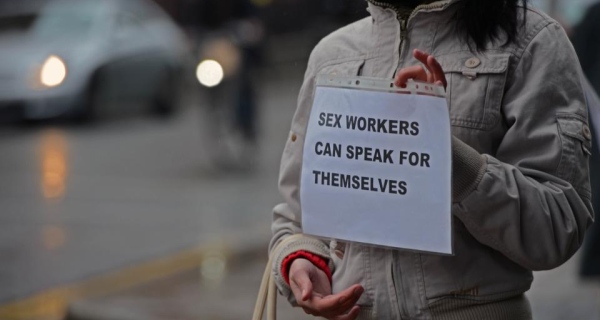
Registration for the Desiree Alliance Conference is still open with hotel room discounts until July 7th.
Tensions over escorting simmer in rural Australian towns, where touring sex workers follow the market that transient miners create, even after the Queensland Supreme Court upheld a ruling that allows hotel owners to refuse accommodations to sex workers.
Beijing police rejected the ruling of a Guangdong court in southern China stating that “happy ending” massages are legal.
Kenyan activists have raised the alarm over increasing attacks targeting gay men, male sex workers and transgender women after three brutal assaults, all within the span of several weeks.
Scotland’s bill to criminalize clients of sex workers seems to have failed. No official coverage on that yet, but MSP Rhoda Grant, the proposed law’s main backer, issued a statement on her web site today about how disappointed she was, which was then taken down. Diligent sex workers’ rights activists kept screenshots, however. [Update—Scottish sex workers’ rights org SCOT-PEP issued a press release announcing the defeat of Grant’s bill.-ed.]
Ireland will pay several hundred former residents of Catholic-run Magdalene laundries at least 34.5 million euros ($45 million) to compensate them for years of unpaid labor and human rights abuses, the government announced Wednesday, following a decade-long campaign by laundry survivors.
Meanwhile, The Irish Times reports that a law criminalizing payment for sex has been recommended by the Oireachtas Committee on Justice. Tellingly, the article quotes a representative of Ruhama, one of the organizations behind the Magdalene Laundries, in which countless sex workers were incarcerated and abused, as being in favor of the bill.
Apparently, “rescuing” sex workers against their will is something honeymooning couples can enjoy together now.
Courtney Trouble, progressive porn maker extraordinaire, asked quirky indie actress Ellen Page what she thought of feminist porn, and she responded with a rousing endorsement. We personally have always wanted Ellen Page’s approval.
Margaret Wente, a high-profile regular columnist for the Globe and Mail, wrote an op-ed charmingly titled “Legalize prostitution? Are we nuts?” Ms. Wente is seemingly unaware that prostitution is already legal in Canada, and the case before the Supreme Court right now centers on abolishing laws around prostitution. Wente does mention that she admires one of the case’s plaintiffs, Teri-Jean Bedford, and Bedford tells her what she can do with that admiration on her blog.
A breakdown of Bedford v. Canada on the Ladybud began with the best introductory paragraph written by a non-sex worker on this topic we’ve read in a while: “I am not a sex worker, I am an ally to sex workers and I want to add my voice to their voices. I am not here to talk for sex workers. They don’t need me to talk for them. Enough people have talked for sex workers for long enough. I want to talk with sex workers, to add my voice to the chorus of brave voices already crying out, demanding a listening ear.”
Texas passed a law that requires other large cities to create court ordered “rehabilitation” programs for women convicted of prostitution, modeled after a Houston program.
Burlesque dancer/stripper star Dita von Teese posed for the latest issue of Bwatt magazine.
Tech geeks are amused by the fact that some of the phone sex numbers listed in the game The Last of Us are real.
Here’s another moral panic fueled mind-boggler—’Sex establishment’ is a regulated government category in the UK, yet jobs in them can’t be announced on government backed career advice websites because they are “degrading” and “exploitative.”
You can read continued analysis of the implications of the Supreme Court’s decision to strike down the anti-prostitution loyalty pledge in Salon, the Atlantic, the Huffington Post, Slate and the Global Post. If you only have time to read one article, though, we recommend Tracy Quan’s piece in the Drum on the strange bedfellows the case had our movement cozying up to.
What can feminists learn from Indian sex workers?
Scottish sex worker activist Laura Lee continues to be awesome this week writing about the hypocrisies and absurdities created by stigma around sex work in the Independent. The op ed’s title alone makes us exultant: “Sex workers don’t deserve to be stigmatised—and we don’t want your pity, either.”
The Prague Assembly approved a bill to regulate prostitution, giving it the status of regular business, that is to be submitted to the Chamber of Deputies, the lower house of parliament. This version of legalization would include mandatory STI testing and licensing.
Bollywood actress Shruti Haasan spoke to the Hindi News about her role as a sex worker in D-Day. When asked if prostitution should be legalized, though, she cannily avoided the question: “In my opinion, there should be an open discussion on this topic.” There, that couldn’t possibly offend anyone.
Cambodia’s Ministry of Foreign Affairs dismissed a U.S. report on human trafficking in Cambodia released last week as “ludicrous and untrue.”